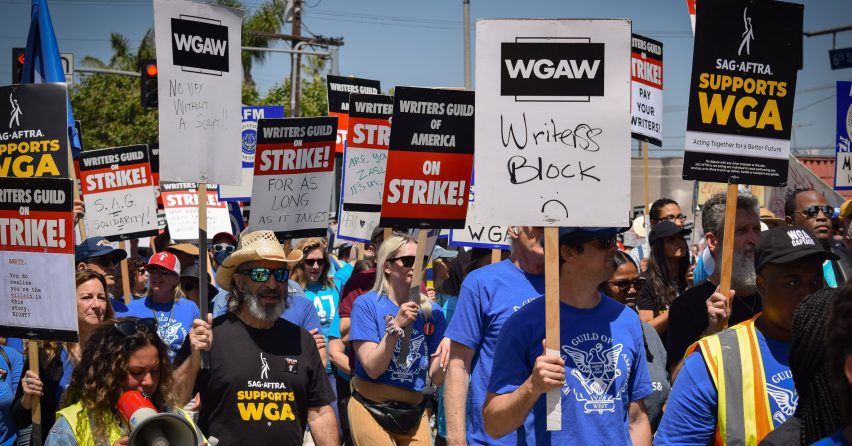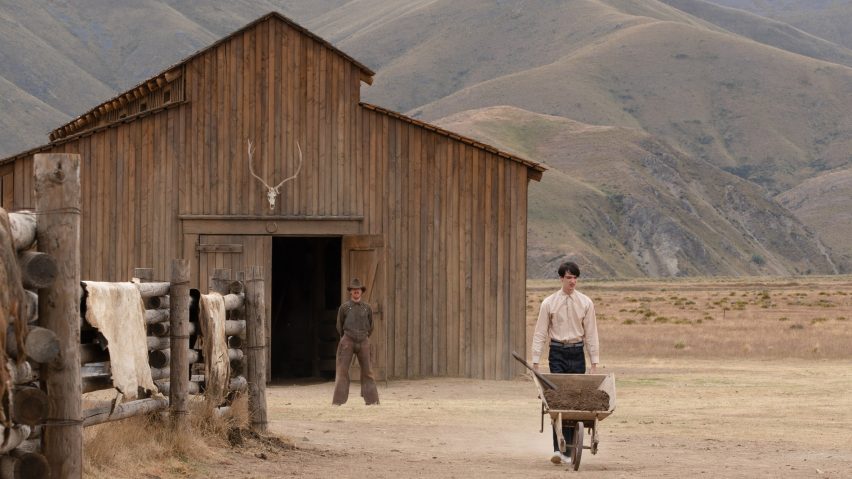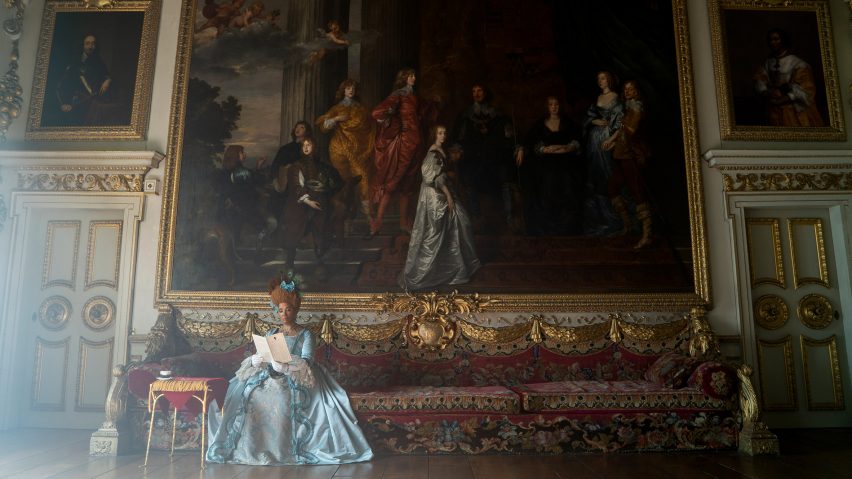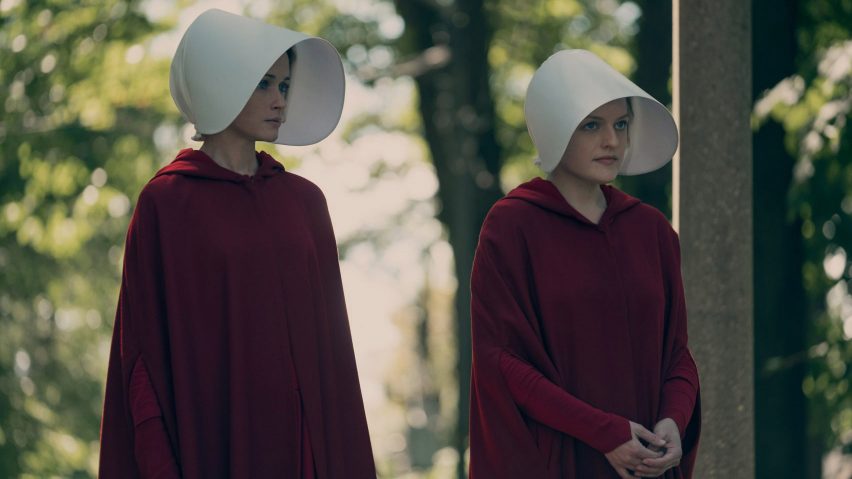
Hollywood strikes having "massive knock-on repercussions" for film designers
Designers working in the film industry have spoken to Dezeen about the "huge" financial impact they are suffering as a result of ongoing strikes in Hollywood.
Set, production and costume designers described being unseen casualties in the industrial disputes that have effectively ground the movie and TV business to a halt since the spring.
"People are burning through their savings"
"Every single person who works in film has been drastically affected by the strikes," said production designer Judy Becker, who was Oscar-nominated for the 2013 film American Hustle.
"I and everyone I know have been out of work since the WGA strike began," she told Dezeen. "The financial toll has been huge."
"People are burning through their savings, downsizing, selling equipment – yet there has been almost zero public discussion of the effect the strikes have had on thousands and thousands of workers."
Members of The Writer's Guild of America (WGA) downed tools in early May over concerns about pay and studios' use of AI.

That strike recently came to an end after writers reached a deal with studio bosses, but separate industrial action involving the Screen Actors Guild-American Federation of Television and Radio Artists (SAG-AFTRA), which began in mid-July, continues.
Despite expressing support for the two labour unions, film creatives who belong to other departments relayed feeling both the professional and personal effects of the strikes – which are the longest to hit Hollywood in decades.
"I would imagine that there's a large quantity of the art department sitting at home waiting for the phone to ring," said production designer Grant Major, who won an Academy Award for his work on The Lord of the Rings: The Return of the King and conceived the set for the 2021 revisionist Western film The Power of the Dog.
"So I think it's pretty tough actually. Tough for a lot of people because we support the strikes, you know, but it's not as though we've got to gain anything from it."
Most people are likely to be unaware of the strikes' impact on the large numbers of people involved in TV and film projects, he added.
"By nature, we're sort of invisible to the wider viewing public," he said of the many crew members whose task is to create film sets.
"They might not really understand that there are hundreds of people who make a movie. Our job's largely done by the time we get filming."
Bridgerton set decorator Natalie Papageorgiadis agrees. Describing the strikes as a "major crisis" for industry professionals, the UK-based designer noted the impact on not only all film departments but anyone who contributes to the making of a movie.
"Caterers, florists, people that work in security – the knock-on repercussions are massive," she said.
Impact spreading far beyond Hollywood
Papageorgiadis also pointed out that the international nature of the film industry means the effects are being felt far beyond California.
"Many people don't realise how many large-scale American productions are actually shot over here on UK soil, with UK crew members," she said.
Major, a Kiwi, said film-industry designers in New Zealand are also feeling the reverberations.
"In New Zealand there is social welfare income people can apply for but the government is pretty reluctant to pay out unemployment benefits unless you're actively looking for other work," he said.
"I heard that the social welfare department did have a lot of applicants for the benefit when we stopped [working] though."

Costume designer Ane Crabtree, whose credits include dystopian drama The Handmaid's Tale and Apple TV's The Changeling, has been keeping busy growing crops on the farm she set up at her home in rural Pennsylvania during the industry lull.
"There are people close to me in the world of costumes, very close to me, who are hardworking people who work all the time who don't have the savings to have health insurance," she said.
"They're behind on their house payments. I'm very close. All of us are very close because there's no end in sight."
Crabtree highlighted the complexity involved in fully supporting the strikes but feeling underrepresented as a costume department.
"I think the thing I focus on is if we could all just get together again," she considered. "It's one thing to support the writers' strike and SAG-AFTRA but I do feel like I don't know how much they're going to support us if and when that would ever happen again."
"As costume folks we are encouraged to support the writers and the actors, and we do, and I do, but it gets to be hard when we have no stake in the game and we're doing it out of our good graces and our real support of people not just as unions, but as human beings supporting our friends," she added.
The costume designer said that despite some support, she did not hear back from a number of writers, actors and producers when she previously invited them to be part of Naked Without Us – a campaign lobbying for pay equity within the costume department.
"That was like an 'aha' moment – like, we really aren't respected but we're expected to support them," reflected Crabtree.
"We're one-sixth of the frame, no matter how you slice it," she continued. "Along with the writer, director, actor, director of photography and production designer."
"I may need to go back to being a restaurant server"
Becker also acknowledged how – like Crabtree and her farm work – film professionals have turned to alternative industries during the strikes, often reluctantly.
"I haven't been interested in designing in another context except for my own residence since I went into this field because I love film," she said.
"If employment doesn't come back soon, however, I may need to go back to being a restaurant server, the job which sustained me while I was in school, and also working as a personal assistant," she added.
"I have seen businesses offering discounts to members of SAG-AFTRA and WGA, but I have not seen any business offering a discount to those of us in IATSE [a labour union for the entertainment industry's technicians, artisans, and craftspeople] who have been unemployed without having had any part in the decision to strike."

With the writers' dispute resolved, there are hopes that the actors' dispute may also soon come to an end, though some argue that the SAG-AFTRA negotiations are more complex and so could drag on.
Despite this, the designers were broadly largely optimistic about the future of film – as long as industry-wide working conditions improve.
Moving forward, Crabtree believes the ordeal has demonstrated that a reset is needed in the way that designers and other workers are treated by the wider movie industry.
"The one-word answer is respect," she said. "Awareness, manners, respect and empathy. You can't go wrong, and none of them cost anything."
The main image is courtesy of Wikimedia Commons.
Dezeen In Depth
If you enjoy reading Dezeen's interviews, opinions and features, subscribe to Dezeen In Depth. Sent on the last Friday of each month, this newsletter provides a single place to read about the design and architecture stories behind the headlines.